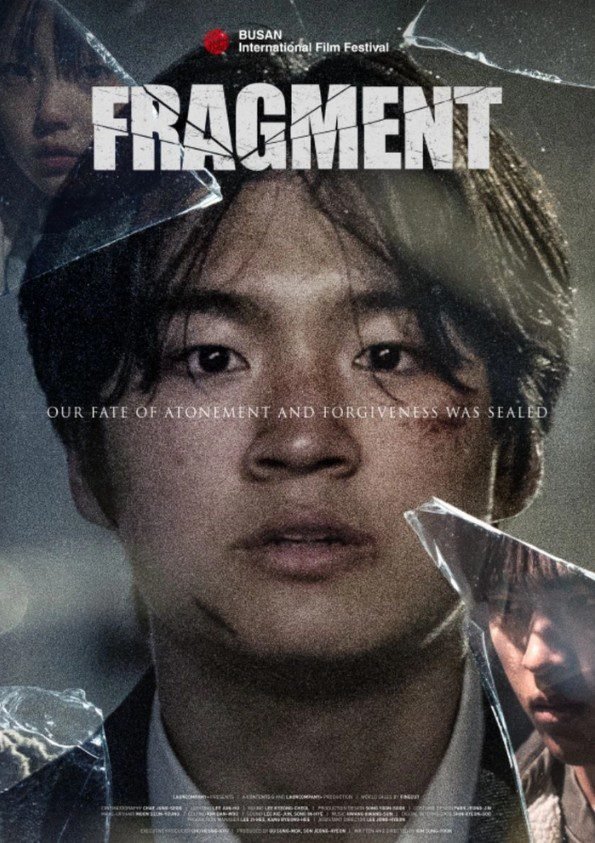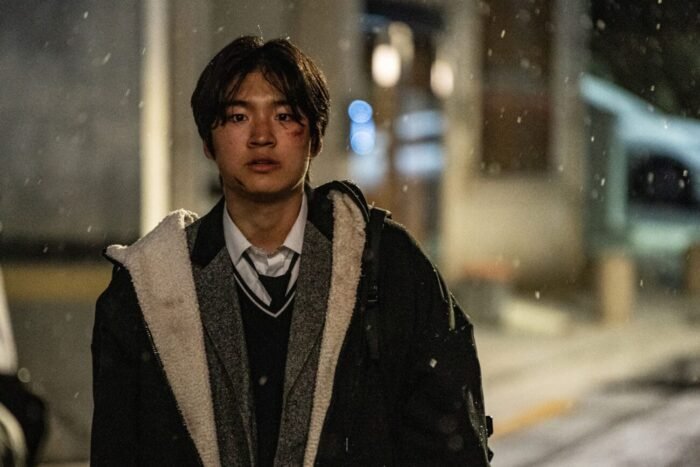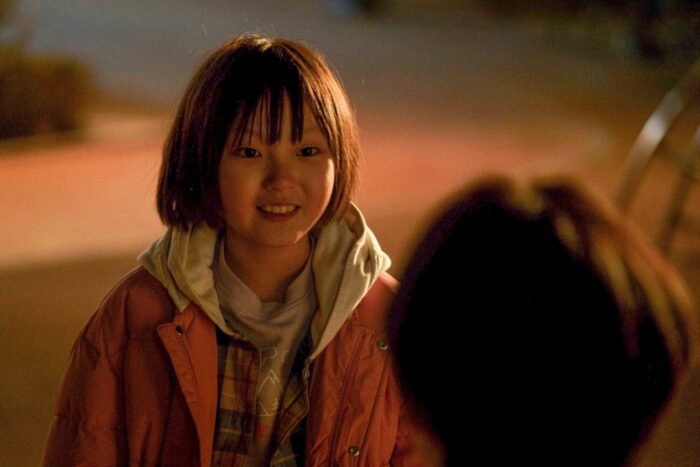It’s profound to see a struggle on screen as beautifully captured or achingly tragic as Kim Sung-yoon’s gripping, intense, and poignantly poetic directorial debut, Fragment. A long-standing AD in Korea’s film industry, working on films like The Vanished and Born 1982, Kim Sung-yoon certainly has a knack for setting up a gorgeous shot, and plenty are served up in his patiently executed and thoughtfully written drama-thriller. Fragment is a story about guilt, pain, male toxicity, and cultural ostracization—a film about the sins of the father that ultimately become the battles fought by his children.

The viewer takes their place unknowingly in the middle of events that have already occurred. We’re introduced to Jun-gang (Oh Ja-hun), packing up his backpack and making sure his little sister has hers packed too, and then to Gi-su (Moon Seong-hyun) receiving a call from his teacher, Mr. Park. The film switches back to Jun-gang speaking with the teacher, somberly, to an extent that a teacher passing through the area comments that it looks as if Jun-gang is in trouble.
Fragment doesn’t divulge the details outright about why these two teenagers in the same class are the focal point of the film, allowing the audience to follow along inquisitively, enthralled by the performances and assessing the serious nature of the conversation meant to draw them closer. Until it’s eventually out in the open that Jun-gang’s father has murdered Gi-su’s parents.
The film firmly insulates itself in Jun-gang’s gaze from here, the weight of everything his father has burdened him with firmly resting upon his shoulders. Jun-gang’s first thoughts are of his sister, trying to shield and desperately searching for a job to provide for the two of them, but he hits roadblocks when asked for parental permission, since he’s only fifteen years old. Jun-gang tries to maintain his composure for his sister and appearances, attempting not to stir up trouble by continuing as if nothing happened. But the world creeps in, like it often does, and the two boys eventually get wind of who the other is. That knowledge spreads throughout the community, providing Jun-gang with a target on his back and a cruel label.

Fragment is a deeply absorbing and contemplative film that is as near-perfect a cinematic gem as you can hope for in the indie space. The film is a dramatic powerhouse that will knock you flat. Kim Sung-yoon understands how to drive this film, anticipating every meticulous angle for realism as he tells this story. He starts with toxicity, apprising Jun-gang with a defensive position throughout the film, which exacerbates situations along the way, and it ultimately reveals more about Jun-gang’s upbringing than who he wants to be.
Firmly declaring “you are not your parents,” Fragment seeks to introduce shades of gray into the Korean cultural values of Filial Piety, where children respect, obey, and are expected to care for and carry out the wishes of their elders. The film checks all these boxes pretty much in the first scene, when both teens consider playing hooky from school. Strong grades and a good education is one way to honor parents’ wishes. Then Jun-gang tries to pay the bills, facing his father’s responsibilities in his absence. The stress of it all is beginning to get to him, and there’s a tremendous psychological factor for all of it: guilt.
The film navigates the court of public opinion, gradually erasing the insulated perspective as societal pressures mount in the wake of the tragedy. Guilty by association, Jun-gang’s friends, classmates, and his father’s landlord are among those who begin labeling him a killer, and Gi-su’s anger at the situation leads to violent confrontations. Jun-gang’s continual defensive escalations remind the audience of his innocence, screaming obscenities at his landlord as if it’s the first time he’s spoken them to an authoritative figure.

In contrast, there are characters who care about Jun-gang and try to reach him. Still, none can understand the internal struggle of Jun-gang’s abandonment that has saddled him with insurmountable pressures that have instantly forced him to abandon his youth and walk an adult path. A path he isn’t ready or equipped for. There’s added heartbreak as the spiral of community discomfort begins to affect Jun-gang’s sister. However, as characters like Mr. Park and his aunt offer alternative viewpoints from those around him, they’re often met with insatiable rage, yet stemming from pure sorrow from a child who is not emotionally mature enough to articulate his emotions in any other way.
Kim Sung-yoon’s Fragment is a remarkable film experience. I could easily see this film on Korea’s short list for Oscar contenders at the end of the year. The story is compelling, and its themes are resonant in both the political and social media climate. That also extends to survivors of generational trauma who survived their own parental situations and can relate to some of the themes and mockery. Kim Sung-yoon has created a deeply troubling portrait of ostracization, one that asks us to extend understanding and kindness when these unthinkable acts occur. The ones who died aren’t the only victims; Gi-su and Jun-gang are the collateral damage of these actions, forced to suffer even though they’ve done nothing wrong. The world breaks Jun-gang at fifteen, and he’s doing his best to pick up the pieces.
American audiences will find similarities in the dramatic cadence of Fragment to school shooting aftermath films like Mass, where the parents of two kids involved in a shooting, one a victim and the other a shooter, meet to air out their anger and resentment. Kim Sung-yoon’s Fragment rests in the same vein, though in making his story about children facing this unprecedented lesson, there’s a lot more claustrophobia present.
Fragment played as part of the Fantasia International Film Festival on Wednesday, July 16. An encore presentation will be held on Thursday, July 24. Check out the film’s page on the Fantasia website for more information.




